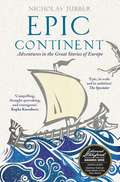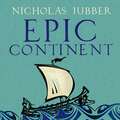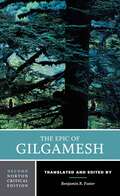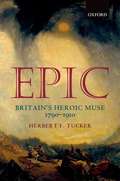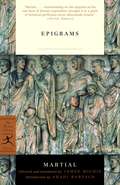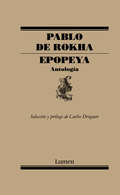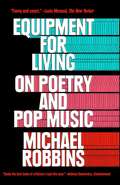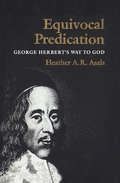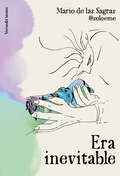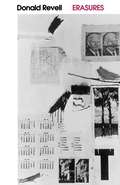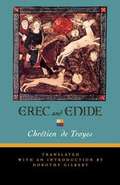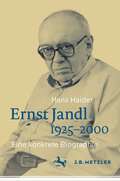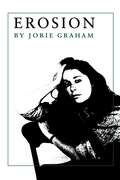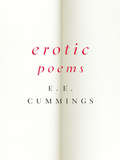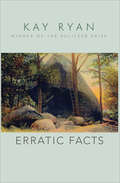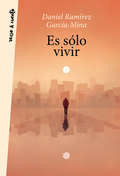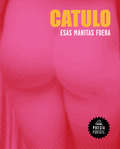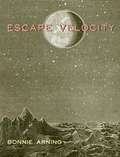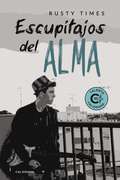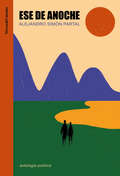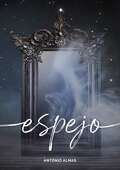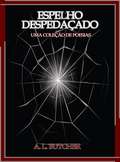- Table View
- List View
Epic Continent: Adventures in the Great Stories of Europe
by Nicholas JubberThese are the stories that made Europe.Journeying from Turkey to Iceland, award-winning travel writer Nicholas Jubber takes us on a fascinating adventure through our continent's most enduring epic poems to learn how they were shaped by their times, and how they have since shaped us. The great European epics were all inspired by moments of seismic change: The Odyssey tells of the aftermath of the Trojan War, the primal conflict from which much of European civilisation was spawned. The Song of the Nibelungen tracks the collapse of a Germanic kingdom on the edge of the Roman Empire. Both the French Song of Roland and the Serbian Kosovo Cycle emerged from devastating conflicts between Christian and Muslim powers. Beowulf, the only surviving Old English epic, and the great Icelandic Saga of Burnt Njal, respond to times of great religious struggle - the shift from paganism to Christianity. These stories have stirred passions ever since they were composed, motivating armies and revolutionaries, and they continue to do so today.Reaching back into the ancient and medieval eras in which these defining works were produced, and investigating their continuing influence today, Epic Continent explores how matters of honour, fundamentalism, fate, nationhood, sex, class and politics have preoccupied the people of Europe across the millennia. In these tales soaked in blood and fire, Nicholas Jubber discovers how the world of gods and emperors, dragons and water-maidens, knights and princesses made our own: their deep impact on European identity, and their resonance in our turbulent times.
Epic Continent: Adventures in the Great Stories of Europe
by Nicholas JubberShortlisted for the Stanford Dolman Travel Book of the Year 2020Award-winning travel writer Nicholas Jubber journeys across Europe exploring Europe's epic poems, from the Odyssey to Beowulf, the Song of Roland to the Nibelungenlied, and their impact on European identity in these turbulent times. These are the stories that made Europe.Journeying from Turkey to Iceland, award-winning travel writer Nicholas Jubber takes us on a fascinating adventure through our continent's most enduring epic poems to learn how they were shaped by their times, and how they have since shaped us. The great European epics were all inspired by moments of seismic change: The Odyssey tells of the aftermath of the Trojan War, the primal conflict from which much of European civilisation was spawned. The Song of the Nibelungen tracks the collapse of a Germanic kingdom on the edge of the Roman Empire. Both the French Song of Roland and the Serbian Kosovo Cycle emerged from devastating conflicts between Christian and Muslim powers. Beowulf, the only surviving Old English epic, and the great Icelandic Saga of Burnt Njal, respond to times of great religious struggle - the shift from paganism to Christianity. These stories have stirred passions ever since they were composed, motivating armies and revolutionaries, and they continue to do so today.Reaching back into the ancient and medieval eras in which these defining works were produced, and investigating their continuing influence today, Epic Continent explores how matters of honour, fundamentalism, fate, nationhood, sex, class and politics have preoccupied the people of Europe across the millennia. In these tales soaked in blood and fire, Nicholas Jubber discovers how the world of gods and emperors, dragons and water-maidens, knights and princesses made our own: their deep impact on European identity, and their resonance in our turbulent times.(P)2019 Hodder & Stoughton Limited
Epic Lives and Monasticism in the Middle Ages, 800-1050
by Anna Lisa TaylorThis is the first book to focus on Latin epic verse saints' lives in their medieval historical contexts. Anna Taylor examines how these works promoted bonds of friendship and expressed rivalries among writers, monasteries, saints, earthly patrons, teachers and students in Western Europe in the central Middle Ages. Using philological, codicological and microhistorical approaches, Professor Taylor reveals new insights that will reshape our understanding of monasticism, patronage and education. These texts give historians an unprecedented glimpse inside the early medieval classroom, provide a nuanced view of the complicated synthesis of the Christian and Classical heritages, and show the cultural importance and varied functions of poetic composition in the ninth, tenth and eleventh centuries.
Epic Of Gilgamesh: 2nd Norton Critical Edition
by Benjamin R. Foster“This scrupulous new translation of The Epic of Gilgamesh manages to convey much of the archaic power and even something of the occasional humor of the ancient Mesopotamian poem. What is especially valuable is that the translators, by collating passages from the different ancient versions of this epic that have survived only in fragments, have made available many vivid narrative episodes that will be new to most English readers of the poem.” ―Robert Alter, University of California, Berkeley This Norton Critical Edition includes: An expanded translation from the Akkadian by Benjamin R. Foster based on new discoveries, adding lines throughout the world’s oldest epic masterpiece. Benjamin R. Foster’s full introduction and expanded explanatory annotations. Eleven illustrations. Analogues from the Sumerian and Hittite narrative traditions along with “The Gilgamesh Letter,” a parody of the epic enjoyed by Mesopotamian schoolchildren during the first millennium BCE. Essays by Thorkild Jacobsen, William L. Moran, Susan Ackerman, and Andrew R. George, and a poem by Hillary Major. A Glossary of Proper Names and a Selected Bibliography.
Epic Visions
by Caroline Vout Helen LovattThe epic genre has at its heart fascination and horror at viewing death. Epic heroes have active visual power, yet become objects, turned into monuments, watched by two main audiences: the gods above and the women on the sidelines. This stimulating and ambitious study investigates the theme of vision in Greek and Latin epic from Homer to Nonnus, bringing the edges of epic into dialogue with the most celebrated moments (the visual confrontation of Hector and Achilles, the failure of Turnus' gaze), revealing epic as both massive assertion of authority and fractured representation. It demonstrates the complexity of epic constructions of gender: from Apollonius' Medea toppling Talos with only her eyes to Parthenopaeus as object of desire. On display are the vertical gaze of the gods, mortal responses, prophets as penetrative viewers and rape victims, ecphrasis as objectification, women on the walls gazing sidelong, heroic bodies fragmented and fetishized.
Epic: Britain's Heroic Muse 1790-1910
by Herbert F. TuckerThis book is the first to provide a connected history of epic poetry in Britain between the French Revolution and the First World War. Although epic is widely held to have been shouldered aside by the novel, if not invalidated in advance by modernity, in fact the genre was practiced without interruption across the long nineteenth century by nearly every prominent Romantic and Victorian poet. Poets kept the epic alive by revising its conventions to meet an overlapping series of changing realities: insurgent democracy, Napoleonic war, the rise of class consciousness and repeated reform of the franchise, challenges posed by scientific advance to religious belief and cherished notions of the human, the evolution of a postnationalist and eventually imperialist identity for Britain as the world's superpower. Each of these developments called on nineteenth-century epic to do what the genre had always done: affirm the unity of its sponsoring culture through a large utterance that both acknowledged the distinctive flowering of the modern and affirmed its rootedness in tradition. The best writers answered this call, Herbert Tucker argues, by figuring Britain's self-renewal and the genre's as versions of one another. In passing, he notices scores of mediocre congeners (and worse), so as to show where the challenge of a given decade fell and suggest what lay at stake. The background these lesser works provide throws into relief what the book stresses in extended discussions of several dozen major works: an unbroken history of experimentation in which circumspect, inventive, worried epoists engaged because the genre and the age alike demanded it.
Epigrams: With An English Translation (Modern Library Classics)
by MartialThis is a reproduction of a book published before 1923. This book may have occasional imperfections such as missing or blurred pages, poor pictures, errant marks, etc. that were either part of the original artifact, or were introduced by the scanning process. We believe this work is culturally important, and despite the imperfections, have elected to bring it back into print as part of our continuing commitment to the preservation of printed works worldwide. We appreciate your understanding of the imperfections in the preservation process, and hope you enjoy this valuable book.
Epopeya: Antología
by Pablo De RokhaRescate de la gran antología prologada que Carlos Droguett hizo de la poesía de Pablo de Rokha. Epopeya es la recuperación de un grandioso hito de la poesía chilena. En 1974, Carlos Droguett publicó en La Habana una amplia selección prologada de la obra de Pablo de Rokha, quien seis años antes se había quitado la vida. Además de la amistad, los unía una afinidad literaria marcada por el ímpetu, el desborde y la acritud. Fue inmejorable el trabajo de Droguett, hecho para la prestigiosa colección Casa de las Américas de Cuba y hoy reeditado íntegramente por Lumen Poesía: una antología sustancial y maciza antecedida de una extensa introducción que realza con inteligencia el valor de la gran poesía rokhiana, esa escritura única, celebratoria y demoledora a la vez.
Equipment for Living: On Poetry and Pop Music
by Michael RobbinsBrilliant, illuminating criticism from a superstar poet—a refreshing, insightful look at how works of art, specifically poetry and popular music, can serve as essential tools for living.How can art help us make sense—or nonsense—of the world? If wrong life cannot be lived rightly, as Theodor Adorno had it, what weapons and strategies for living wrongly can art provide? With the same intelligence that animates his poetry, Michael Robbins addresses this weighty question while contemplating the idea of how strange it is that we need art at all. Ranging from Prince to Def Leppard, Lucille Clifton to Frederick Seidel, Robbins’s mastery of poetry and popular music shines in Equipment for Living. He has a singular ability to illustrate points with seemingly disparate examples (Friedrich Kittler and Taylor Swift, to W.B. Yeats and Anna Kendrick’s “Cups”). Robbins weaves a discussion on poet Juliana Spahr with the different subsets of Scandinavian black metal, illuminating subjects in ways that few scholars can achieve. Equipment for Living is also a wonderful guide to essential poetry and popular music.
Equivocal Prediction: George Herbert's Way to God
by Heather A. R. RossEquivocation replaced Thomistic analogy as a means of predicting God in the minds of many seventeenth-century divines. In this study, Professor Asals analyses George Herbert's use of language as a method of devotion in his major cycle poem, The Temple. Tracing the logical notion of equivocation (here the extensive us of puns and pun-like verbal devices) as prediction through other influences on his poetry, she argues that the very basis of Herbert's work lies in its responsibility in predicting God as One and Love. Asals explains that, for Herbert, the act of writing a poem--the actual handwriting--was a sacramental and ceremonial act of worship recreating Christ's death on the cross: ink becomes blood. The sign on the printed page points sacramentally to the blood it signifies. Thus, the domain of Herbert's poetry reaches from earth to heaven and from heaven to earth. Continuing with an examination of Herbert's language, including aspects of phonology, morphology, and syntax, Asals reveals its two-fold significance in expression and meaning. Through a detailed reading of the entire corpus, she investigates the profound influence of Augustinianism and Wisdom literature on the way poetry works and explores the meaning of gesture and its importance to Herbert's Anglicanism--his belief in the importance of ceremony. In the final chapter, on the topos of Magdalene, its relationship to Herbert's mother, and his mother's importance to his writing, Asals argues that Anglicanism as a way to God (and God as a way to himself) is at the very core of Herbert's poetics. This book establishes a new critical milieu in which Herbert may be interpreted and sheds new light on the poetry of other writers of the period.
Era inevitable
by Mario de las SagrasEra inevitablees el nuevo libro de Mario de las Sagras, más conocido como @soloeme,el poeta que ha conquistado a cientos de miles de personas con sus mensajes y su lenguaje fresco y directo en TikTok.Resulta que el mundoeras tú,lo demás solo decorado.Ir contracorriente es un modo de vida; sentirte distinto al resto, una parte necesaria de la juventud; y darte cuenta de que eres ese tipo al que en otros momentos tanto criticaste, un capítulo obligatorio para hacerse adulto.Era inevitable es una lección de humildad, un golpe en la mesa que nos derrota y a la vez nos atrapa, es una rendición, una bandera blanca a las canciones de amor y la historia del caos que deja la tormenta del deseo al pasar por uno. Aunque no queramos. Es el proceso de desangrado, lento pero constante, del que ve venir y no logra parar el desastre del amor.Mario de las Sagras hace un ejercicio de valentía en este libro poniendo en negro sobre blanco los alegatos y poemas que lo han hecho tan popular en las redes, especialmente en TikTok. En sus páginas están presentes algunos de sus textos más virales y otros muchos que son totalmente inéditos, que se mueven entre lo emocional y lo social y que son verdaderos dardos directos al pecho del lector.Apunten... Fuego.
Erasures (Wesleyan Poetry Series)
by Donald Revell"When history proves useless and consensus chimerical," Donald Revell has written, "the poet's necessity is invention, and this does a lot to explain our century's preference for revision over mimesis." For Revell, The disruptions of this century have destroyed old illusions of historical continuity: "The consolations of history are furtive,/ then fugitive, then forgotten." Invoking such contemporary events as the collapse of communism and the end of the Cold War, he seeks to integrate the political with the personal in a search for new paradigms of value and honor.
Erec and Enide
by Chrétien De Troyes Dorothy Gilbert"Ms. Gilbert's couplets read beautifully, encompassing Chretien's range of tone--from wit to elevation of sentiment--very sensitively."--Charles Muscatine, author of "Chaucer and the French Tradition. "A wonderfully accurate and witty translation of Chretien's Erec and Enide which brilliantly renders the rhymed octosyllabics of the original text in compelling, colloquial English. ... A treat not just for students and scholars of Old French literature but, more important, for what we now call general readers--that is, all those who relish a rollicking, well-told tale."--Sandra M. Gilbert, editor of "The Norton Anthology of Literature by Women. "Older translations, generally in stupefying Maloryan prose, convey little of the sense of the poetry so obvious in the original, and admirably reproduced in this translation."--Robert Harrison, translator of "Gallic Salt: Eighteen Fabliaux. "One of the best English verse renderings of any poem by Chretien."--William J. Kibler, author of "An Introduction to Old French. "A union of scholarship and consummate art that affected me like the great stories I read in my formative years; a permanent vicarious experience."--Ruth Stone, poet, author of "Second-Hand Coat. "This will be a standard English translation of "Erec and Enide and a definitive one."--Roger J. Steiner, editor of "The New College French and English Dictionary.
Ernst Jandl 1925–2000: Eine konkrete Biographie
by Hans HaiderErnst Jandl (1925–2000) gehört zu den wichtigsten Lyrikern des 20. Jahrhunderts. Mit Lettern- und Lautgedichten machte er sich in den 1950er Jahren in seiner Heimat Wien zum Außenseiter, fand jedoch rasch Anerkennung in den Zentren der Konkreten Poesie in Stuttgart, Prag, London. Wie ein Popstar entführte er bei lautstarken Auftritten die Jugend der Revolte-Generation mit Sprachwitz und -spiel in die Schmerzbezirke von Krieg, absurdem Alltag, Liebesdefizit. Er setzte dem hohen Ton eine „heruntergekommene“ Sprache und unterkühlten Dialekt entgegen. Mit der Lebenspartnerin Friederike Mayröcker schuf er Pionierwerke des ‚Neuen Hörspiels‘. Hans Haider legt nach Archivrecherchen in halb Europa und jahrzehntelanger Tätigkeit in der Wiener Kulturszene als Kritiker und Herausgeber die erste umfassende Jandl-Biographie vor.
Erosion (Princeton Series of Contemporary Poets #24)
by Jorie GrahamFrom Erosion:SAN SEPOLCROJorie Graham. . . . How cleanthe mind is,holy grave. It is this girlby Pierodella Francesca, unbuttoningher blue dress,her mantle of weather,to go intolabor. Come, we can go in.It is beforethe birth of god. No-onehas risen yetto the museums, to the assemblyline bodiesand wings to the open airmarket. This iswhat the living do: go in.It's a long way.And the dress keeps openingfrom eternityto privacy, quickening.Inside, at the heart,is tragedy, the present momentforever stillborn,but going in, each breathis a buttoncoming undone, something terriblynimble-fingeredfinding all of the stops.Jorie Graham grew up in Italy and now lives in northern California.She has received grants from the Ingram-Merrill Foundation, the Bunting Institute, and the John Simon Guggenheim Memorial Foundation.Her first book, Hybrids of Plants and of Ghosts (Princeton, 1980), won the Great Lakes Colleges Association Award as the best first book of poems published in 1980.
Erotic Poems
by E. E. Cummings George James FirmageE. E. Cummings's erotic poems and drawings gathered in a single volume. Many years ago the prodigious and famously prolific E. E. Cummings sat in his study writing and thinking about sex. His private brooding gave way to poems and drawings of sexual and romantic love that delight and provoke. Here, collected for this first time in a single volume, are those erotic poems and sketches, culled from Cummings's original manuscripts by the distinguished editor George James Firmage. from "16" may i feel said he (i'll squeal said she just once said he) it's fun said she (may i touch said he how much said she a lot said he) why not said she
Erratic Facts
by Kay RyanKay Ryan a classic American poet (John Freeman) is acclaimed for her highly intelligible, deeply insightful poems. Erratic Facts is her first new collection since the Pulitzer Prize-winning The Best of It, and it is animated with her signature swift, lucid, lyrical style. At once witty and melancholy, playful and heartfelt, Ryan examines enormous subjects existence, consciousness, love, loss in compact poems that have immensely powerful resonance. Sly rhymes and strong cadences lend remarkable musicality to her incisive wisdom. While these pieces are composed of the same brevity and vitality that has characterized her singular voice over the course of more than 20 years, her mind is sharper than ever, her imagination more eccentric and daring. Erratic Facts solidifies Ryan’s place at the pinnacle of American poetry, and proves that she will remain among the leading innovators in literary history.
Es sólo vivir
by Daniel Ramírez«Los poemas de Dani Ramírez son como pequeños hallazgos entre el tráfago incesante de los días laborables, pasan rápido -como los edificios vistos por la ventanilla de los transportes urbanos-, pero mañana seguirán estando ahí, esperándote. Si piensas que la poesía es algo ajeno a tu vida, lee estos poemas y te la encontrarás al salir del portal».Karmelo C. Iribarren «¿Cómo es posible que el cometa de la vida tenga tanta fuerza como para iluminar el agujero negro de la muerte?» Para enfrentarse a esta pregunta, estos poemas afilan la mirada y posan sus palabras sobre lo aparentemente fugaz: los bares, las aceras, el metro, los trenes, los desconocidos, los seres amados... Exploran los territorios de la nostalgia, pero también nos llevan, en contra de Sabina, a los lugares donde un día fuimos felices. El amor, los sueños, el miedo y el deseo encuentran en estos versos su rostro más cotidiano. Daniel Ramírez conmueve y sorprende con un libro que recuerda a los maestros de la experiencia y que reafirma el mejor de los hallazgos: la poesía está en la calle. Nos asalta al doblar la esquina. Críticas:«Los poemas de Dani Ramírez son como pequeños hallazgos entre el tráfago incesante de los días laborables, pasan rápido -como los edificios vistos por la ventanilla de los transportes urbanos-, pero mañana seguirán estando ahí, esperándote. Si piensas que la poesía es algo ajeno a tu vida, lee estos poemas y te la encontrarás al salir del portal».Karmelo C. Iribarren
Esas manitas fuera
by CatuloEsas manitas fuera trae a Poesía Portátil algunos de los versos de Catulo, el poeta más moderno y honesto de la Antigüedad. Explotó la subjetividad y la intimidad como ninguno de sus coetáneos y, a lo largo de la historia, ha influido a muchos otros por su estilo directo y personal. Su obra versa sobre temas de los más variados: pasión, amor y reflexiones sobre la soledad o la muerte. Esta selección recoge una muestra de todos ellos, pero se fija también en su producción más desvergonzada, en versos salidos del estómago, de la cama y del burdel en los que la modernidad de Catulo es innegable y su figura una reivindicación de la flexibilidad de la sexualidad y el amor libre. Reseñas:«No tiene ningún sentido intentar interpretar a Catulo sin considerar sus trabajos más irreverentes y explícitos. No podemos ignorar su lado más sórdido, ni deberíamos.»Charlotte Higgins, The Guardian «[Juan Antonio González ] un poeta que también es latinista, y que le ha hallado a Catulo su punto desenfadado y cultísimo, sabroso, letrado y sin rancio pudor, pues escribía desde una moral distinta.»Luis Antonio de Villena, Babelia «Catulo siempre nos ofrece repentinamente al leerlo ese don de la espontaneidad y de la modernidad de su poesía.»Antonio Colinas, El Cultural
Escape Velocity: Poems (Mountain West Poetry Series)
by Bonnie ArningFrom the moment of a marriage’s heated inception to its period of luminous crowding and onward into distance and darkness, Bonnie Arning’s Escape Velocity asks if it’s possible to exist outside the only universe we’ve ever known. In modes both lyric and narrative, we are given a peephole into the height and decline of a marriage that begins beneath the moving lights of Las Vegas, Nevada, and traverses the devastating terrain of gambling, miscarriage, infidelity, and violence. Arning gives voice to divergent aspects of love and violence through her use of math problems, erasures, dictionary entries, structured stanzas, and sprawling free verse. This multiplicity of forms comes together to explore everything from pop culture references of domestic violence to cultural notions of victims and victimhood. However dark, collectively these poems tell a love story—an acceptance of our capability to love those who hurt us, but also the love-of-self required to slowly and steadily reach "the velocity to be everleaving." In the tradition of Eavan Boland and Louise Glück, Arning wrestles down and examines the terrible without flinching. We journey with her, engrossed by each difficult truth: a precipice near which we are both terrified to stand and transfixed by its unnerving insistence on beauty.
Escupitajos del alma
by Rusty TimesPoesía urbana, poemas que arañan. <p><p>Poemas para ti, si sientes que la música es lo más importante de tu vida; si buscas nuevas formas de expresar la rabia que te consume; si te invade la nostalgia por lo que pudo ser y no fue; si te apetece darle una patada a lo entrepierna de lo establecido; site ríes con las contradicciones de la vida; si bebes para olvidar y olvidas que perdiste un amor; si viajas sin moverte del sitio... <p><p>Este libro es para ti. Para ti que sabes bien quién eres y lo que quieres. Atraviesa los versos mientras escuchas tu música favorita.
Ese de anoche
by Alejandro Simón PartalLa antología poética de Alejandro Simón Partal, uno de los autores más relevantes del momento. Esta primera antología de la poesía de Simón Partal es una gran fiesta, una esperada rave en la arena, junto a la orilla, muy cerca del mar y de sus profundidades. Ese de anoche recoge la aventura vital de un poeta que vive de cara a la vida: las sábanas tendidas en un prado abierto, un grupo de chicos que trabajan sus cuerpos en el paseo marítimo, el perro que persigue a las palomas sin intención de atraparlas, la nieve que cae sobre el campo y que exige un caminar de otra manera son algunas de las imágenes y escenarios de esta poesía orientada al milagro cercano de la existencia, versos que no explican el mundo, sino que se empapan de él. Con un fondo enigmático y sereno, la mirada de Partal es la mezcla perfecta de sabiduría y de avidez, de trascendencia y de instinto, de silencio y de hambre.«Delicada y cruda, antigua y novísima, lírica y prosaica, esta poesía nos habla del ardor del deseo, del amor que otorga sentido y «ofrece desapego», de lo innecesario del acontecimiento, de cómo lo divino accede a manifestarse en el rojo de los tomates, y de la impotencia que a veces se esconde en las palabras. Mientras leemos estos poemas descarnados, conmovedores, sabemos ya que se quedarán por siempre a vivir con nosotros».Piedad BonnettAlejandro Simón Partal (Estepona, 1983). Escritor y poeta. Es doctor en Filología Hispánica. Ha publicado teatro, novela, ensayo y poesía. Con Una buena hora (Visor, 2019), su quinto libro de poemas, obtuvo el Premio Internacional de PoesíaHermanos Argensola y con La fuerza viva (Pre-Textos, 2017) el Arcipreste de Hita. Su obra dramática Resistencia y sumisión (Antígona, 2021) fue seleccionada por la Factoría Echegaray. Con La parcela (Caballo de Troya, 2021) ganó el Premio Cálamo Otra mirada. Ha trabajado en universidades de Francia y República Checa. Ese de anocherecoge una selección de su obra poética desde el año 2008, incluyendo los últimos inéditos.@simonpartal La crítica ha dicho:«Dios es bello y ama la belleza, dicen los místicos. Simón Partal nos lo recuerda en sus poemas. Son auténticos frescos mitológicos, tiernos y delicados rezos, celebraciones de la vida que nos susurran con firmeza que no hay nada que temer».Oliver Laxe «Leo a Simón Partal para rascar la paz: con él salgo del after y llego al campo y respiro monte, árboles, tiempo, amor como fenómeno de la disponibilidad, amistad que me salva de la velocidad. Si pudiera, lo llevaría siempre en mi bolso: como esta antología, como un pintalabios con el que ponerme guapa solo para mí misma, cuando nadie me está mirando. Leo a Simón Partal para sentir en el cuerpo cómo crecen los rosales».Lorena G. Maldonado, El Español
Espejo: (No tiene subtítulo)
by Antonio AlmasEspejo mío, espejo mío, ¿cuál de estos textos soy yo? Ya no sé cómo te encontré, si fue en un paseo junto al mar o si fuiste tú quien entró llanura adentro buscando la sombra fresca de mi cuerpo. Sé que ha transcurrido toda una vida, que hemos sido casi todo, aunque continuemos siendo casi nada. Ya no sé cómo te encontré, si fue en un paseo junto al mar o si fuiste tú quien entró llanura adentro buscando la sombra fresca de mi cuerpo. Sé que ha transcurrido toda una vida, que hemos sido casi todo, aunque continuemos siendo casi nada.
Espelho Despedaçado: Uma coleção de poesias de A.L. Butcher
by A. L. ButcherPoesia da guerra, política e os caprichos da vida. Monumentos a guerreiros caídos, versos fantasiosos da loucura da política humana, tédio e poemas mais leves sobre a natureza e o meio ambiente.
